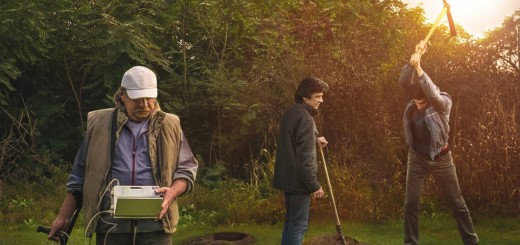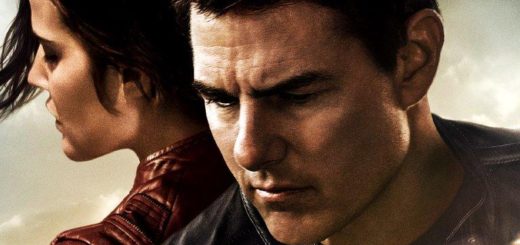THE REVENANT Review
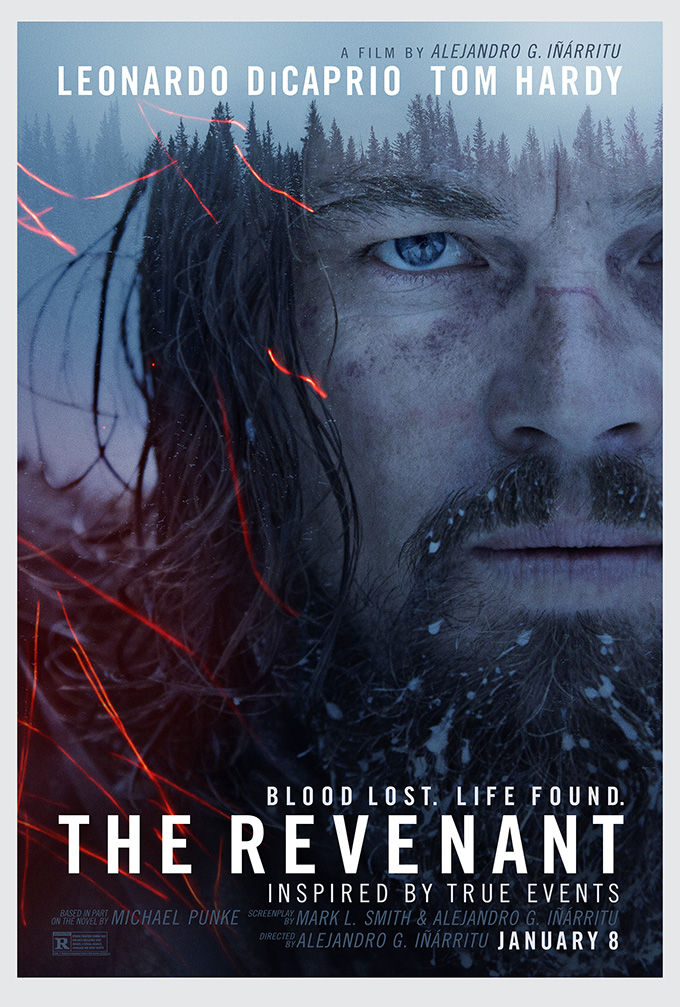
Director: Alejandro G. Iñárritu
Genre: Action
Release: 2015
It goes without saying that audiences around the world anxiously anticipated the winter season for the arrival of the latest STAR WARS installment, but among cinephiles and self-proclaimed film buffs, there was the additional hype for Alejandro G. Iñárritu’s latest outing, THE REVENANT, to hit the silver screen with brute force. Visceral, thrilling, and visually audacious, Iñárritu’s 2015 outing is a pure exercise in aesthetic, an enthralling logistical epic, and an overwhelming narrative disappointment. As the dust of the hype train settles, one looks back to find that THE REVENANT is nothing other than masturbatory filmmaking that will be the talk of the town in film schools for the coming weeks, but will hold no lasting effect other than the bravery of its ambition—but boy is the ambition through the roof.
Commencing with loose, organic cinematography and voice-overs that ape the best sequences of Mallick’s THE NEW WORLD and THE TREE OF LIFE, viewers are launched into a pensive dream state that destructively serves to contrast the primal brutality of the following scene depicting a stunning battle between Native Americans and frontiersmen. These opening 15 minutes also present what is possibly the single most impressive cinematic sequence of 2015, and showcases Emmanuel Lubezki functioning on an unprecedented overdrive in the frigid environment, capturing a sequence that truly needs to be seen in order to be appreciated.
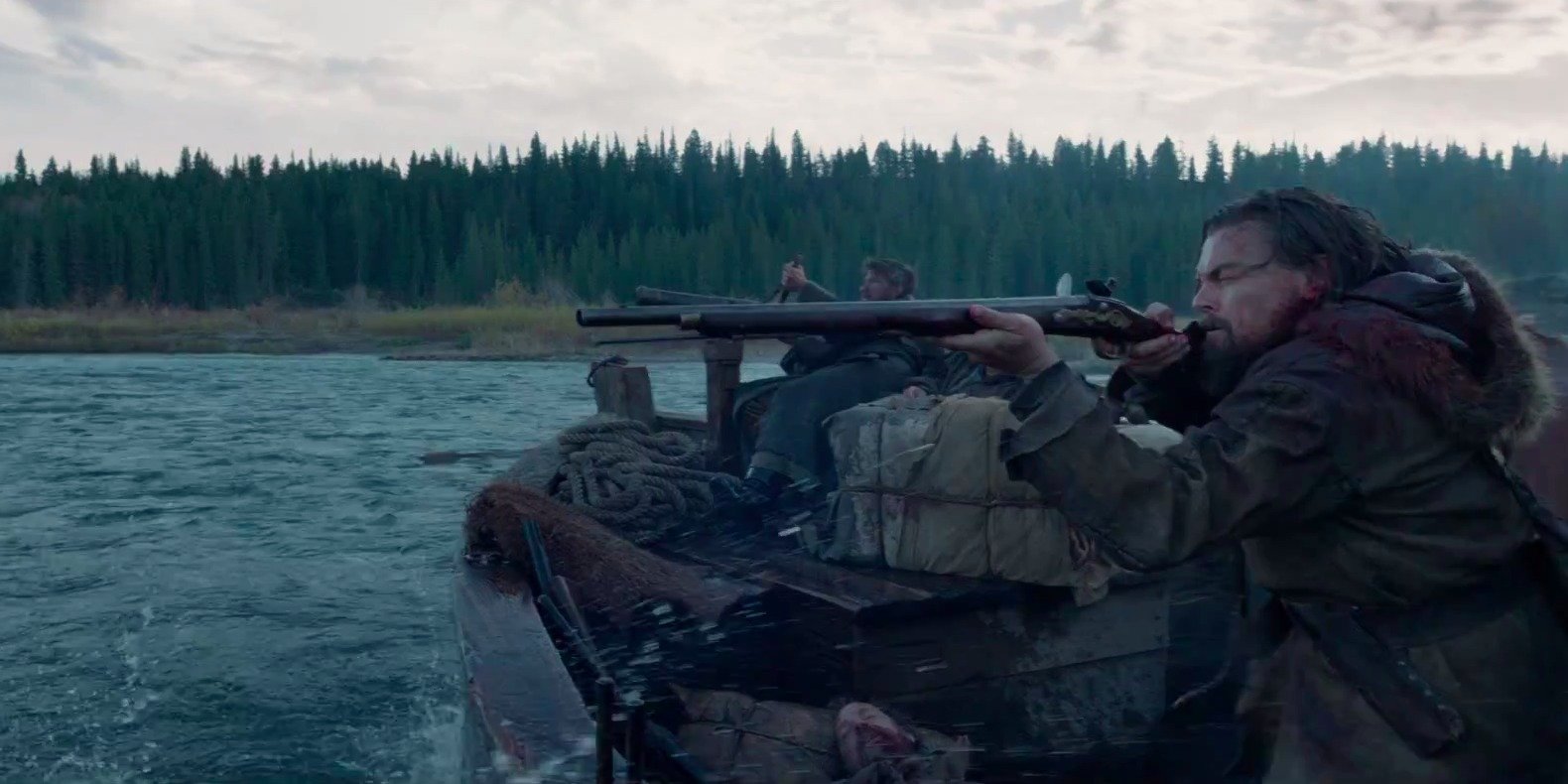
Aiming high and firing on all cylinders
The inciting incident occurs during a vicious bear attack scene, something that had been teased and advertised into oblivion, and for good reason. Not only is this the highlight of the entire picture, but although the aforementioned battle scene is more impressive in scope, this tense, messy, and dirty brawl is possibly the closest Iñárritu gets to showcasing something never before seen by audiences. Unfortunately for the director, his film also flatlines shortly after due to trailers and IMDB descriptions virtually mapping out the majority of the first and second acts. Because of this, THE REVENANT doesn’t really leave much room for surprise, ultimately sacrificing its discussion of interracial conflict for an extremely predictable revenge tale. It’s lazy and compromises a fantastic milieu in order to chase the tropes of a traditional western.
Having said that, the film does succeed on all counts when viewed purely as a survival-revenge story, seesawing between sequences of man vs. nature and man vs. man. The only reason this comes across as disappointing is because viewers are well aware that Iñárritu can be more sophisticated if he’d only have tried harder. Instead, THE REVENANT plays out with the logistical opulence of APOCALYPSE NOW, but without bringing anything new to the table thematically. It’s big, but shallow.
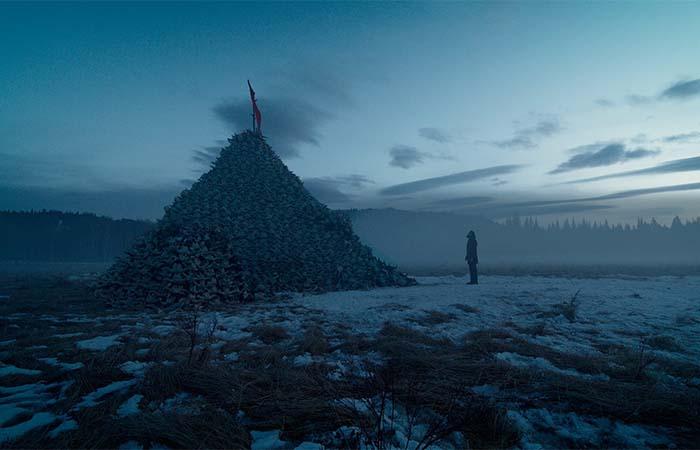
Like, 1,000 dead buffalo big
Even Lubezki’s camerawork begins to falter slightly as the film transpires. Iñárritu insisted that his film be shot chronologically, and as such, the wear and tear on the crew’s morale begins to show with the passage of time, especially when considering all the horror stories that had been published about the film’s production process. Composition is no longer as perfectionist near the end. Shots are never as elaborate and nothing ever comes close to the film’s first 30 minutes.
Furthermore, Lubezki’s weakness as a photographer begins to show during the film as well. His insistence on shooting with extreme wide focal lengths makes for breathtaking imagery, but his overuse of these lenses causes their dramatic impact to lose any bearing. Suddenly, Lubezki’s lens use is just a part of his trademark look, and no longer chosen with purpose in order to highlight important moments. After all, when a cinematographer shoots an entire film using 20-30mm lenses, tone shifts can no longer be accomplished with camerawork, lying in the hands of every other department instead. This is doubly disappointing when coupled with the uninspired score.
THE REVENANT is never as thought-provoking as it ought to be, and although DiCaprio is an absolute powerhouse to behold in the brutal climate, it’s disappointing that during the little time he has on screen to interact with other actors, he isn’t given more meaningful dialogue. This is especially true when he engages with Tom Hardy, who plays a fantastically compelling and equally authentic antagonist. Instead, viewers are treated to elementary exposition dumps that serve to delineate the racist mannerisms of Tom Hardy, as well as DiCaprio’s desire to teach his Mestizo son the harsh realities that come with being Native-born.
Because much of DiCaprio’s performance is contingent on the impeccable makeup work and his emotionally dissonant glances, viewers are left with a rare case in which the strong dialogue is ultimately hampered by a disappointingly vapid narrative structure. It is at this point when Iñárritu reveals that his Achilles heel lies in how amateurish of a manner his film has been written, allowing spectacle to overshadow substance a la Christopher Nolan. It is absolutely undeniable that THE REVENANT is a technical marvel and that DiCaprio plays his most unorthodox performance to date, but none of that changes the fact that the film is riddled with imperfections, an inexcusable failure when considering the fact that the filmmakers were given the privilege to make a $135 million film.
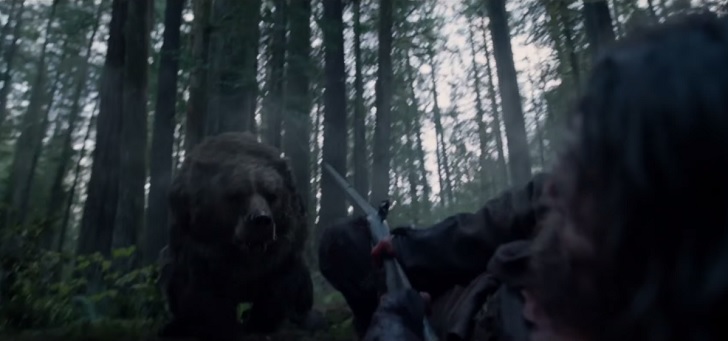
Most of which was spent on competent bear wranglers
What’s fascinating is that despite all its flaws, there’s so much that Iñárritu’s film still does right, thus being comparable to dozens of other films from the last few years. THE REVENANT understands how to portray the severity of an icy climate better than EVEREST ever did, capitalizing on a Bear Grylls mentality of showcasing what has to be done to survive. It does a superior job to THE MARTIAN in providing viewers with an abandoned protagonist, left voiceless in a desolate environment, and more than anything else, its understanding of the messiness of brutality, whether against man or beast, is captured in a crude nature that succeeds exactly where ONLY GOD FORGIVES failed.
Despite all the punches it lands, the film is best compared to 2015’s VICTORIA, its peer in misguided ambition: aiming for the cool factor before successfully writing up a narrative that doesn’t tread too much familiar ground, ultimately falling into the same category as Christopher Nolan, endlessly loved by film school students for its technical ambition, and falling short as an enduring piece of cinematic history.
Verdict: Do Not Recommend


